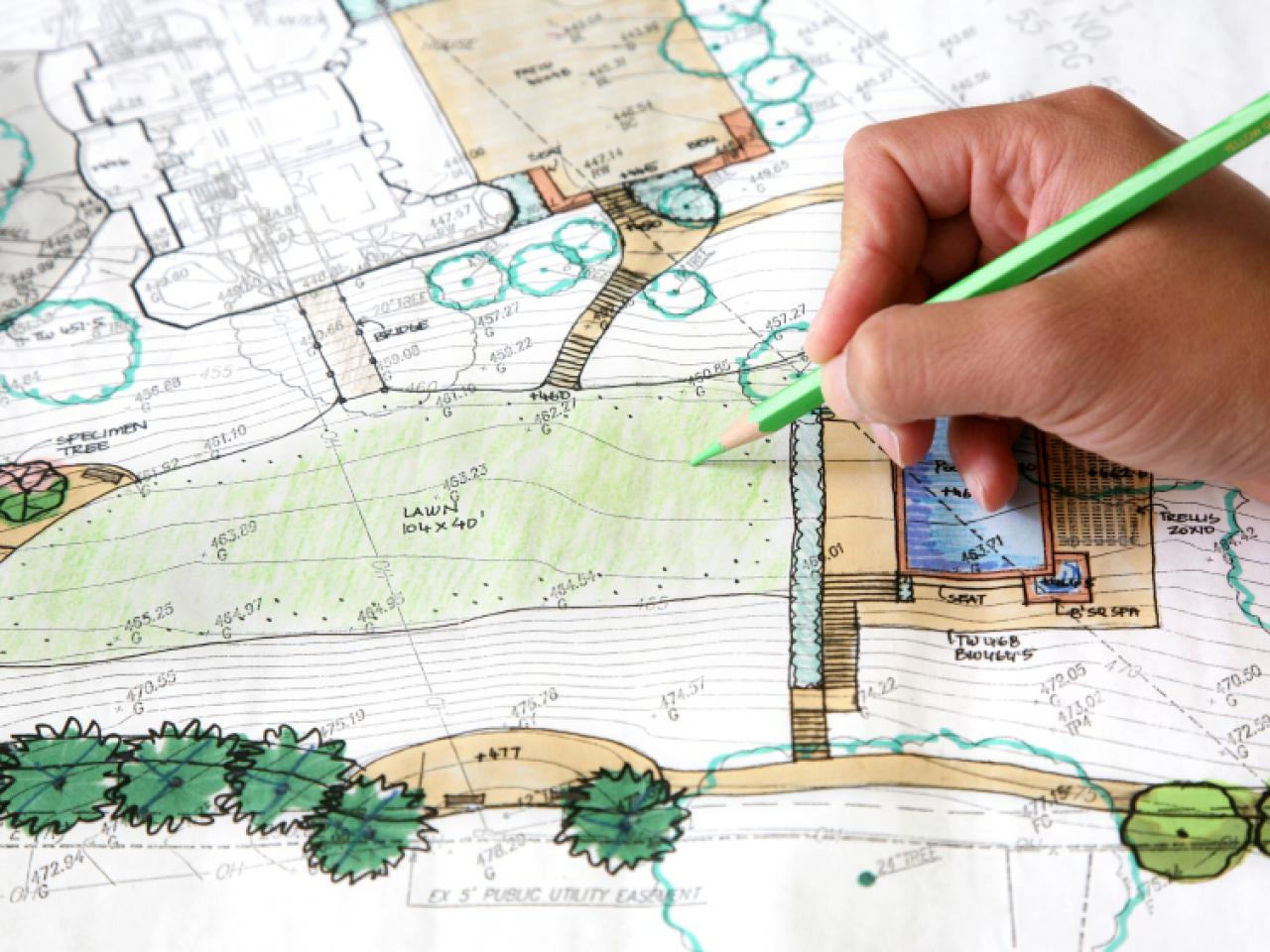Home>Garden Essentials>How To Make Money From Landscaping


Garden Essentials
How To Make Money From Landscaping
Modified: August 28, 2024
Learn how to make money from your garden through landscaping techniques. Discover strategies to turn your outdoor space into a profitable venture.
(Many of the links in this article redirect to a specific reviewed product. Your purchase of these products through affiliate links helps to generate commission for Storables.com, at no extra cost. Learn more)
Introduction
Welcome to the world of landscaping, where beauty meets creativity and nature flourishes. Whether you have a green thumb or simply an eye for design, the field of landscaping offers incredible opportunities to not only express your artistic side but also to make money from your passion. In this article, we will explore the various ways you can turn your love for gardening and landscaping into a profitable business venture.
Landscaping involves transforming ordinary outdoor spaces into stunning and functional living areas. From private gardens to public parks, there is a constant demand for skilled landscapers who can bring life and beauty to any space. Whether it’s designing a landscape from scratch, implementing intricate hardscape features, or providing regular maintenance services, the possibilities are endless in this evergreen industry.
Before embarking on your journey to make money from landscaping, it’s essential to familiarize yourself with the basics. It’s important to develop a strong foundation of knowledge and skills in horticulture, design principles, and various landscaping techniques. Understanding the different plants, their growth requirements, and how to combine them harmoniously is crucial in creating visually appealing and sustainable landscapes.
Moreover, it’s essential to keep up with the latest trends and innovations in landscaping to stay competitive in the market. Explore new design concepts, study different landscaping styles, and broaden your knowledge by attending workshops, seminars, and industry events. This ongoing learning process will help you stay ahead of the game and provide the best possible services to your clients.
As a landscaper, you have the freedom to work as an individual contractor, establish your own landscaping company, or even join an existing landscaping firm. The choice is yours, and it depends on your goals, resources, and financial capacity. Whether you decide to start small or aim for large-scale projects, the key to success lies in providing excellent quality work, exceptional customer service, and building a strong network of satisfied clients.
In the following sections, we will delve deeper into the different aspects of the landscaping business. From designing and implementing projects to offering specialized services and building a strong client base, we will guide you on your journey to make money from landscaping. So, let’s get started and uncover the secrets of turning your passion into profit!
Key Takeaways:
- Start a landscaping business by learning about plants, creating a solid plan, and obtaining necessary licenses. Offer design, implementation, and maintenance services to grow your business and make money from your passion for nature and design.
- Expand your landscaping business by offering specialized services, such as xeriscaping and outdoor lighting. Focus on customer satisfaction, stay updated with industry trends, and continuously improve to achieve long-term success.
Getting Started with Landscaping
Before you can start making money from landscaping, it’s important to lay a strong foundation for your business. This involves understanding the industry, assessing your skills and resources, and establishing a solid plan. Here are some key steps to getting started with landscaping:
- Educate Yourself: To excel in the landscaping industry, it’s crucial to have a solid understanding of plants, horticulture, design principles, and landscaping techniques. Consider enrolling in horticulture courses, attending workshops or seminars, and seeking mentorship from experienced landscapers. Continuously educate yourself to stay updated with the latest trends and practices.
- Assess Your Skills: Take an inventory of your landscaping skills and identify your strengths and weaknesses. Determine the areas where you excel and those that require improvement. This self-assessment will help you narrow down your focus and market your services accordingly.
- Invest in Quality Tools: Landscaping requires the use of various tools and equipment to carry out tasks efficiently. Invest in high-quality gardening tools, machinery, and safety gear to ensure that you can deliver professional results to your clients. Start with the essentials, such as sturdy shovels, pruning shears, lawn mowers, and wheelbarrows, and gradually expand your collection as your business grows.
- Create a Business Plan: A well-thought-out business plan is essential for any successful venture. Outline your long-term goals, target market, services offered, pricing structure, marketing strategies, and financial projections. This document will serve as a roadmap for your business and help you make informed decisions.
- Obtain Necessary Licenses and Permits: Depending on your location, you may need to obtain specific licenses and permits to operate legally as a landscaper. Research the requirements in your area and ensure that you comply with all local regulations. This will give you credibility and peace of mind when dealing with clients.
- Build a Portfolio: Begin by creating a portfolio of your previous landscaping projects, even if they are from personal or volunteer work. Showcase your skills, creativity, and attention to detail through high-quality photographs and descriptions. This portfolio will be invaluable when pitching your services to potential clients.
Starting a landscaping business is an exciting endeavor that allows you to turn your passion for nature and design into a profitable career. By following these initial steps and setting a strong foundation, you will be well on your way to making money from landscaping. In the next section, we will explore the lucrative field of offering landscaping design services. Stay tuned!
Offering Landscaping Design Services
One of the most profitable aspects of the landscaping business is offering design services. Many homeowners and businesses seek professional help to enhance the aesthetic appeal and functionality of their outdoor spaces. Here are some key steps to successfully offer landscaping design services:
- Consultation and Assessment: Begin by meeting with clients to understand their needs, preferences, and budget. Assess the existing landscape, taking note of any challenges or unique features. Through this consultation process, you can gather valuable information and establish a rapport with the client.
- Conceptualization and Planning: After gathering all the necessary information, create a detailed landscape design plan. This plan should include features such as plant placement, hardscape elements, water features, and lighting. Use professional design software, or hand-drawn sketches, to present your ideas visually to the client.
- Plant Selection: Choose a variety of plants that are suitable for the client’s location, climate, and personal preferences. Consider factors such as color, texture, size, and growth requirements. Create a balanced and cohesive plant palette that will thrive in the given environment and provide year-round beauty.
- Hardscaping: Incorporate hardscape elements, such as pathways, patios, decks, and retaining walls, to add structure and functionality to the landscape. Consider the client’s lifestyle and how they will use the space when designing these features.
- Cost Estimation: Provide a detailed cost estimate for the design and implementation of the landscaping project. Include the cost of materials, labor, and any other additional expenses. Be transparent with the client to establish trust and avoid any surprises down the line.
- Presentation: Present your design plan to the client, explaining the rationale behind your choices and how it addresses their unique requirements. Use visual aids, such as 3D renderings or virtual reality walkthroughs, to help the client envision the end result. Solicit feedback and make necessary revisions as per the client’s input.
- Collaboration: Collaborate with contractors, suppliers, and other professionals to bring the design to life. Coordinate the implementation process, ensuring that the project is executed efficiently and according to the agreed-upon design specifications.
Offering landscaping design services requires a blend of creativity, technical knowledge, and excellent communication skills. By providing clients with innovative and well-thought-out designs, you can differentiate yourself from competitors and attract a higher-end clientele. In the next section, we will explore the process of implementing landscaping projects. Keep reading to discover more ways to make money from your landscaping business!
Implementing Landscaping Projects
Implementing landscaping projects is where the magic happens! This is the stage where you take your design plans and bring them to life. Whether you’re creating a tranquil garden oasis or transforming a barren space into a flourishing landscape, these steps will guide you through the process:
- Site Preparation: Before starting any physical work, prepare the site by clearing away debris, leveling the ground, and removing any unwanted vegetation. This step provides a clean canvas for your landscaping project.
- Installation of Hardscape: Begin by implementing the hardscape features outlined in the design plan. Install pathways, patios, decks, retaining walls, and other structural elements. Pay attention to proper measurements, leveling, and stability.
- Planting: Next, it’s time to bring in the greenery! Follow the plant specifications from the design plan and carefully install them in their designated spots. Pay attention to proper planting techniques, soil preparation, and watering requirements. This is the stage where your horticulture knowledge truly shines.
- Irrigation and Lighting: Install an efficient irrigation system to ensure that your plants receive adequate water. Consider the specific needs of each plant and design an irrigation system that can be adjusted for optimum watering. In addition, incorporate lighting features to enhance the beauty and functionality of the landscape, providing ambiance and safety for outdoor spaces.
- Softscape Finishing Touches: Add finishing touches to the softscape elements. This includes adding mulch to garden beds for moisture retention and weed prevention, installing ground covers, and pruning plants to achieve the desired shape and structure.
- Clean-up and Site Maintenance: Once the project is complete, clean up the site, removing any debris or leftover materials. Offer site maintenance services to your clients, ensuring that their new landscape remains healthy and vibrant. Provide instructions on plant care, watering schedules, and any additional maintenance tasks.
Implementing landscaping projects requires precision, attention to detail, and the ability to work effectively with a team. It’s important to maintain open lines of communication with your clients throughout the process, providing updates, addressing any concerns, and ensuring that their vision is being brought to life.
Remember, your reputation as a skilled landscaper depends on delivering high-quality work and exceeding client expectations. By showcasing your professionalism, craftsmanship, and commitment to excellence during project implementation, you will build a strong reputation and attract new clients through word-of-mouth recommendations.
In the next section, we will explore the importance of maintaining landscaped areas and how you can provide lawn care services to further grow your landscaping business. Keep reading to discover more opportunities to make money in the world of landscaping!
Maintaining Landscaped Areas
Maintaining landscaped areas is a crucial aspect of the landscaping business. Once a project is complete, it’s essential to ensure that the landscape remains healthy, vibrant, and aesthetically pleasing. Offering maintenance services to your clients not only helps preserve the beauty of their outdoor spaces but also provides you with a consistent source of income. Here are some important steps in maintaining landscaped areas:
- Lawn Care: Regularly mow the lawn to keep it at an optimal height, ensuring healthy grass growth. Offer fertilization services to nourish the soil and promote lush greenery. Control weeds, pests, and diseases by applying appropriate treatments and implementing integrated pest management techniques.
- Pruning and Trimming: Trim and shape shrubs, trees, and hedges to maintain their desired form and prevent overgrowth. Pruning also helps promote healthy growth and enhances the overall appearance of the landscape.
- Seasonal Plant Care: Provide seasonal plant care services to ensure that plants thrive throughout the year. This includes planting seasonal flowers, deadheading spent blooms, and monitoring plants for any signs of stress or disease.
- Irrigation Management: Regularly monitor and adjust the irrigation system to ensure that plants receive adequate water. Conduct routine checks on sprinkler heads, pipes, and valves to identify and fix any issues. Educate clients on proper watering practices to help them maintain their landscape between maintenance visits.
- Leaf and Debris Removal: Clear leaves, branches, and other debris from the landscape regularly. This not only keeps the area neat and tidy but also prevents the accumulation of moisture and pests.
- Efficient Pest and Weed Control: Implement Integrated Pest Management (IPM) techniques to control pests and prevent their infestation. Regularly inspect the landscape for weeds and take appropriate measures to eliminate them, including manual removal or the use of organic herbicides.
- Annual Landscape Refresh: Offer annual landscape refresh services to revitalize the landscape. This includes replacing or adding new plants, mulching garden beds, refreshing the hardscape, and addressing any overgrown or unhealthy areas.
By offering maintenance services, you can build long-term relationships with clients and generate recurring income. Regularly scheduled maintenance visits not only keep the landscape in pristine condition but also provide an opportunity to identify any potential issues early on and address them before they become major problems.
Remember, communication with your clients is key. Regularly update them on the status of their landscape, provide suggestions for improvements, and address any concerns they may have. By demonstrating your commitment to maintaining their investment, you will foster loyalty and earn their trust as a reliable landscaping professional.
Next, we will explore the lucrative field of providing lawn care services. Keep reading to discover how you can expand your offerings and increase your revenue streams in the landscaping business!
Providing Lawn Care Services
Lawn care services are in high demand as homeowners and businesses strive to maintain lush, healthy, and beautiful lawns. Offering comprehensive lawn care services can be a profitable addition to your landscaping business. Here are some steps to providing top-notch lawn care services:
- Lawn Fertilization: Develop a custom fertilization plan based on soil tests and the specific needs of the lawn. Apply the appropriate nutrients at the right time to ensure healthy and vigorous grass growth.
- Weed Control: Implement effective weed control strategies to keep the lawn area free from invasive weeds. This includes regular inspections, spot treatments, and the use of pre-emergent and post-emergent herbicides.
- Aeration and Overseeding: Perform lawn aeration to alleviate soil compaction and improve the flow of air, water, and nutrients to the grass roots. Overseed the lawn with suitable grass varieties to promote thicker, healthier turf.
- Watering Management: Offer watering management services to ensure that lawns are receiving adequate water without wastage. Educate clients on proper watering techniques and recommend appropriate irrigation schedules based on soil type, grass species, and weather conditions.
- Lawn Mowing: Provide regular lawn mowing services to maintain an optimal grass height. Adjust the mowing height according to the season and grass type to promote healthy growth and discourage weed invasion.
- Disease and Pest Control: Monitor the lawn for signs of diseases and pests. Implement appropriate treatments to prevent or control infestations, reducing the risk of damage to the turf.
- Soil Testing: Conduct soil tests to determine nutrient deficiencies, pH levels, and other soil properties. Make recommendations for soil amendments and adjust the fertilization plan accordingly.
- Lawn Renovation: Offer lawn renovation services to repair damaged or neglected lawns. This may include tasks such as dethatching, topdressing with compost, and addressing bare or patchy areas.
Providing lawn care services allows you to establish recurring relationships with clients, as regular maintenance is essential for the health and appearance of their lawns. By offering comprehensive lawn care packages or customizable services, you can cater to the specific needs of each client and maximize your revenue streams.
Remember to stay up to date with the latest lawn care practices, techniques, and industry trends. Continuous education and training will ensure that you provide the best possible services to your clients and maintain a competitive edge in the market.
In the next section, we will explore the opportunities to offer specialized landscaping services to further expand your business and increase your profitability. Keep reading to learn more!
Consider offering additional services such as lawn maintenance, tree trimming, and irrigation installation to increase your revenue stream from landscaping.
Offering Specialized Landscaping Services
As a landscaper, you have the opportunity to offer specialized services that cater to specific needs and niches within the industry. By diversifying your offerings, you can stand out from the competition and attract a wider range of clients. Here are some specialized landscaping services you can consider offering:
- Xeriscaping: Xeriscaping is a landscaping technique that focuses on creating water-efficient and sustainable landscapes. Offer xeriscaping services to clients who are looking to conserve water, reduce maintenance, and create environmentally-friendly outdoor spaces.
- Vertical Gardening: Vertical gardening utilizes vertical space to grow plants, making it ideal for small urban environments or areas with limited ground space. Develop expertise in vertical gardening techniques, such as living walls or vertical vegetable gardens, and offer this unique service to clients.
- Green Roof Installation: Green roofs are becoming increasingly popular as they provide numerous benefits, including improved insulation, stormwater management, and biodiversity. Consider offering green roof installation services to clients who are interested in this sustainable and visually appealing landscaping option.
- Outdoor Lighting: Enhance the ambiance and functionality of outdoor spaces by offering outdoor lighting design and installation services. Put your creativity to work by designing and installing lighting fixtures that highlight architectural features, pathways, and landscape elements.
- Water Feature Design and Installation: Water features, such as ponds, waterfalls, and fountains, can add a touch of tranquility and beauty to any landscape. Become skilled in water feature design and installation to provide clients with a soothing and captivating outdoor focal point.
- Edible Landscaping: Incorporate edible plants and herbs into landscape designs to create beautiful and productive outdoor spaces. Offer edible landscaping services to clients who wish to grow their own food while maintaining an aesthetically pleasing landscape.
- Sustainable Landscaping Consultation: Become a sustainability expert and provide consultation services to clients who are interested in creating eco-friendly and resource-efficient landscapes. Offer advice on water conservation, native plant selection, organic gardening practices, and sustainable maintenance techniques.
- Special Event Landscaping: Cater to clients who are hosting special events by offering landscaping services that transform outdoor spaces into breathtaking venues. This may include temporary installations, floral arrangements, and decorative features tailored to the event theme.
By offering specialized landscaping services, you can position yourself as an expert in a specific niche and command higher rates for your unique skills and expertise. It’s important to continually educate yourself and stay updated with the latest trends and techniques in your chosen specialty.
In the next section, we will explore effective marketing and promotional strategies to help you grow your landscaping business and attract a steady stream of clients. Stay tuned for valuable insights and tips to boost your success!
Marketing and Promoting your Landscaping Business
Marketing and promoting your landscaping business is essential to attract clients and create awareness about your services. Here are effective strategies to help you reach your target audience and grow your landscaping business:
- Website and Online Presence: Create a professional website that showcases your services, portfolio, and contact information. Optimize your website for search engines to improve its visibility in online searches. Establish a strong online presence by utilizing social media platforms, creating a blog, and engaging with your audience through informative content.
- Word-of-Mouth Referrals: Encourage satisfied clients to spread the word about your services. Offer referral incentives or discounts to clients who refer new customers to you. Providing exceptional customer service and delivering high-quality work will naturally generate positive word-of-mouth referrals.
- Networking: Join local business organizations, participate in industry events, and attend community gatherings to network with potential clients and industry professionals. Build relationships with contractors, architects, garden centers, and other businesses complementary to your services.
- Print Marketing Collateral: Create professional business cards, flyers, brochures, and door hangers to distribute in your local area. Target neighborhoods where you have worked or would like to work and offer special promotions or discounts to incentivize potential clients.
- Online Advertising: Consider running targeted online advertisements through platforms like Google Ads or social media platforms. This allows you to reach a broader audience and specifically target individuals in your service area who are actively searching for landscaping services.
- Customer Testimonials and Reviews: Display customer testimonials and positive reviews on your website and social media platforms. Encourage satisfied clients to leave reviews on popular review sites like Yelp, Google My Business, and Angie’s List. Positive reviews build credibility and help establish trust among potential clients.
- Showcase Your Expertise: Demonstrate your expertise by contributing articles or guest blog posts to gardening or home improvement websites. Offer free workshops or webinars on landscaping topics to educate and engage potential clients. This positions you as a knowledgeable professional and helps to generate leads.
- Partnerships and Collaborations: Partner with local businesses, such as garden centers, nurseries, or real estate agencies, to cross-promote your services. Offer to do presentations or workshops for their customers or clients. Collaborating with reputable businesses enhances your credibility and expands your reach.
Consistency is key when it comes to marketing your landscaping business. Develop a marketing plan and allocate a budget for various marketing activities. Track your marketing efforts to determine what strategies are most effective in generating leads and conversions.
Remember, excellent customer service and delivering exceptional results are the foundation of a successful landscaping business. Providing a positive experience for your clients will lead to repeat business and valuable word-of-mouth referrals.
In the next section, we will explore additional ways to create revenue streams and maximize profitability in your landscaping business. Keep reading to discover more opportunities to make money from your passion!
Creating Additional Revenue Streams
Creating additional revenue streams is a smart strategy to maximize profitability and diversify your income in the landscaping business. Here are some effective ways to expand your offerings and generate more revenue:
- Seasonal Decorations: Offer seasonal decoration services to enhance the beauty and festive spirit of outdoor spaces. This may include holiday lighting installations, seasonal flower arrangements, or themed decorations for special occasions.
- Garden Maintenance Plans: Develop garden maintenance plans for clients who prefer ongoing care for their outdoor spaces. Offer monthly or annual maintenance packages that include tasks such as weeding, fertilization, pruning, and general garden care.
- Plant and Material Sales: Nurture relationships with local nurseries and suppliers to offer plant and material sales to your clients. This allows you to provide a one-stop-shop experience and earn additional revenue through commission or markup on products.
- Outdoor Furniture and Accessories: Partner with outdoor furniture or accessory retailers to offer a selection of high-quality products to your clients. Earn a commission on sales or provide a markup on products that are part of your recommended design plan.
- Organic Landscaping Products: With the growing demand for organic and eco-friendly solutions, consider offering organic fertilizers, soil amendments, pest control products, and other environmentally-conscious landscaping supplies.
- Landscaping Workshops and Classes: Share your knowledge and expertise by offering landscaping workshops or classes. Teach participants about various landscaping techniques, plant care, and design principles. Charge a fee for these educational sessions.
- Customized Container Gardens: Design and create custom container gardens for clients who have limited space or want to add a focal point to their outdoor areas. Offer consultation, design, and installation services for stunning container gardens.
- Landscape Renovation Services: Provide landscape renovation services to clients who want to revamp their existing outdoor spaces. This may involve refreshing existing features, adding new elements, or making design improvements based on changing needs or preferences.
By diversifying your income streams, you can maximize your earning potential and cater to a wider range of clients’ needs. Remember to evaluate the market demand, assess your skills and resources, and develop a strategic plan before adding new services or expanding into different areas.
In the next section, we will explore important financial management and pricing strategies to ensure the financial success and sustainability of your landscaping business. Let’s dive into the world of finances!
Read more: How To Make Money In House Design
Managing Finances and Pricing Strategies
Managing finances effectively is crucial for the long-term success and sustainability of your landscaping business. Proper financial management allows you to track income and expenses, price your services competitively, and ensure profitability. Here are some key considerations for managing finances and implementing pricing strategies:
- Keep Accurate Records: Maintain organized and accurate financial records, including invoices, receipts, and expense reports. Use accounting software or hire a professional bookkeeper to help you manage and track your finances efficiently.
- Track Cost of Materials and Labor: Keep a record of the cost of materials, equipment, supplies, and labor associated with each project. This will help you understand your expenses and determine accurate pricing for your services.
- Understand Overhead Expenses: Calculate your overhead expenses, such as rent, utilities, insurance, and marketing costs. These expenses should be factored into your pricing structure to ensure that your services are sustainable and profitable.
- Evaluate Market Rates: Research and analyze the rates charged by competitors in your area. Consider factors such as experience, expertise, and quality of services offered. Use this information as a guideline to set your own pricing strategy.
- Value-Based Pricing: Consider implementing a value-based pricing strategy, where you price your services based on the unique value and benefits you provide to your clients. Focus on the quality of your work, customer satisfaction, and the overall experience you deliver.
- Bundling Services: Consider bundling related services together to provide added value and incentivize clients to choose your comprehensive packages. This can help increase the average transaction value and encourage repeat business.
- Offering Upsells and Add-Ons: Identify opportunities to upsell clients with additional services or enhancements. This can include adding extra features or recommending premium products that enhance the overall quality and appearance of the landscape.
- Seasonal Pricing: Adjust your pricing structure based on seasonal demand and availability. Consider offering discounts or promotions during slower seasons to attract clients and maintain a steady flow of work throughout the year.
- Regularly Review and Adjust Prices: Continuously evaluate your pricing strategy and financial performance. Consider market trends, changes in expenses, and the value you provide to clients. Regularly review and adjust your prices to ensure that they align with your business goals and maintain profitability.
Proper financial management and effective pricing strategies are essential to running a successful landscaping business. By understanding your costs, pricing competitively, and continuously monitoring your financial performance, you can ensure that your business remains profitable and sustainable in the long run.
In the final section, we will explore tips for building and growing your landscaping business. Let’s dive into strategies that can take your business to the next level!
Building and Growing your Landscaping Business
Building and growing your landscaping business requires strategic planning, continuous improvement, and a focus on customer satisfaction. Here are some tips to help you expand and take your business to the next level:
- Focus on Customer Satisfaction: Provide exceptional customer service and aim for customer satisfaction in every project. Happy clients are more likely to provide positive reviews and referrals, which are essential for growing your business.
- Seek Customer Feedback: Regularly ask for feedback from your clients to understand their needs, preferences, and perceptions of your services. Use their feedback to continuously improve and adapt your offerings to better meet their expectations.
- Build Strong Relationships: Nurture relationships with your clients, suppliers, and other industry professionals. Strong relationships can lead to valuable referrals, collaborations, and partnerships that can help grow your business.
- Invest in Marketing: Continue to invest in marketing and promotional activities to increase your brand visibility and attract new clients. Utilize a mix of online and offline marketing strategies to reach your target audience effectively.
- Expand Your Service Offerings: Identify opportunities to expand your services and cater to a broader range of client needs. This could involve offering additional specialized services or branching out into related areas such as landscape maintenance or hardscaping.
- Hire and Train a Competent Team: As your business grows, consider hiring and training competent team members who can assist with project implementation, customer service, and administrative tasks. Building a reliable and skilled team will allow you to take on larger projects and serve more clients simultaneously.
- Stay Updated with Industry Trends: Continuously educate yourself on the latest trends, techniques, and innovations in the landscaping industry. Attend workshops, trade shows, and seminars to stay abreast of industry developments and offer cutting-edge services to your clients.
- Develop Partnerships: Collaborate with other businesses in the industry, such as architects, contractors, and garden centers. This can lead to joint marketing efforts, referrals, and access to a wider client base.
- Embrace Technology: Utilize technology to streamline your operations and improve efficiency. This can include implementing digital tools for project management, scheduling, invoicing, and communication with clients and team members.
- Maintain a Professional Image: Ensure that all aspects of your business, from your website to your vehicles and uniforms, reflect a professional image. This instills confidence in potential clients and sets you apart from competitors.
Remember, building a successful landscaping business takes time, effort, and a commitment to continuous improvement. Stay dedicated to delivering high-quality work, providing exceptional customer service, and staying ahead of industry trends. By implementing these strategies and always striving for growth, you can achieve long-term success in the landscaping industry.
Congratulations on completing this comprehensive guide to making money from landscaping! Armed with your newfound knowledge, go out there and create beautiful outdoor spaces while building a thriving and profitable business.
Conclusion
Landscaping is not only a rewarding and fulfilling passion but also a lucrative business opportunity. With the right knowledge, skills, and strategies, you can turn your love for gardening and design into a profitable venture. Throughout this guide, we have explored various aspects of making money from landscaping, from getting started and offering design services to implementing projects, maintaining landscapes, and providing specialized services.
By following the steps outlined in this guide, you can establish a strong foundation for your landscaping business, build a reputation for delivering exceptional work, and attract a steady stream of satisfied clients. Remember to continuously educate yourself, stay updated with industry trends, and foster strong relationships with clients and industry professionals.
Effective marketing and promotion strategies will help you create awareness about your services, reach your target audience, and generate leads. By providing outstanding customer service and consistently delivering high-quality work, you can earn positive referrals and build a solid client base.
Furthermore, by diversifying your revenue streams, offering specialized services, and implementing smart financial management, you can maximize profitability and ensure the long-term success of your business. Stay adaptable, constantly innovate, and seek opportunities for growth and expansion.
Building and growing a landscaping business requires dedication, hard work, and continuous learning. Stay passionate about what you do, never stop improving, and always strive to exceed client expectations. With the right mindset and a commitment to excellence, you can carve a successful path in the landscaping industry.
So, go forth and create breathtaking outdoor spaces, transform landscapes, and make money from your passion. Embrace the beauty of nature, unleash your creativity, and turn landscapes into works of art while building a thriving business.
Best of luck on your journey to success!
Frequently Asked Questions about How To Make Money From Landscaping
Was this page helpful?
At Storables.com, we guarantee accurate and reliable information. Our content, validated by Expert Board Contributors, is crafted following stringent Editorial Policies. We're committed to providing you with well-researched, expert-backed insights for all your informational needs.














0 thoughts on “How To Make Money From Landscaping”